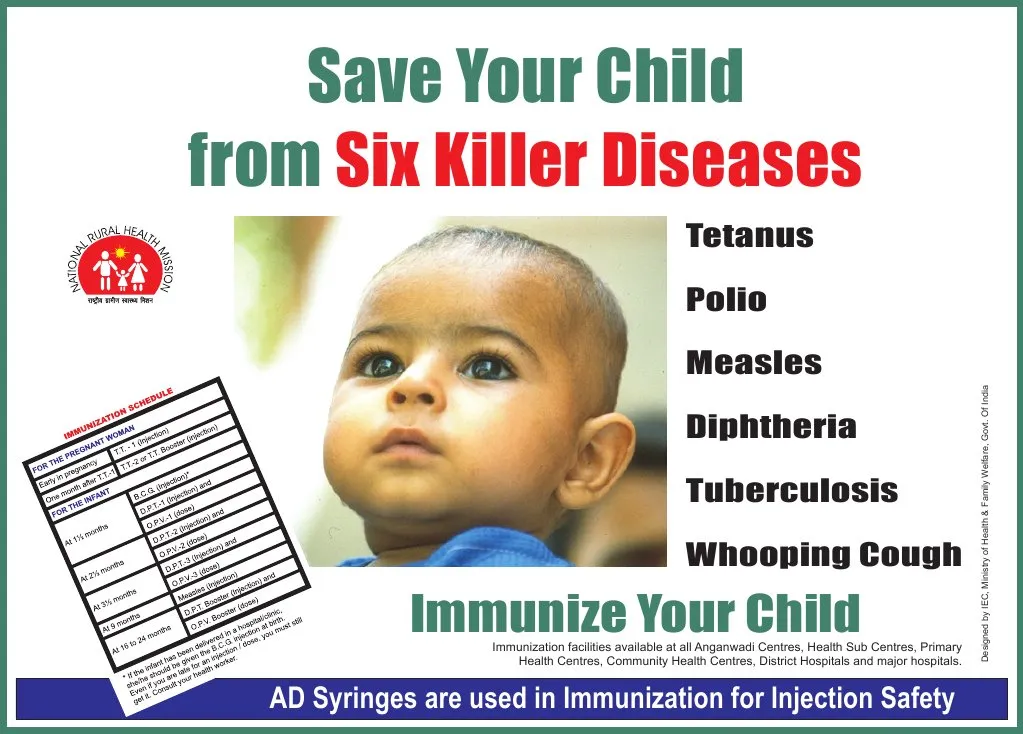By Abujah Racheal
The Federal Government of Nigeria has made significant efforts toward addressing childhood killer diseases and child health outcomes in the last eight years.
The efforts were geared toward tackling the so-called killer diseases of childhood such as measles, pertussis, diphtheria, tetanus, tuberculosis and poliomyelitis.
According to the Federal Ministry of Health (FMoH), government expanded immunisation programmes to ensure that children receive essential vaccines to protect them against diseases.
The ministry said such efforts include routine immunisation campaigns, strengthening vaccine supply chains and increasing access to remote and underserved areas.
The Executive Director, National Primary Health Care Development Agency (NPHCDA), Dr Faisal Shuaib, said that the country had made remarkable progress in the eradication of polio.
He explained that the Federal Government, in collaboration with international partners, implemented extensive polio vaccination campaigns, surveillance systems and community engagement initiatives to reach every child with the polio vaccine.
“As a result, Nigeria achieved the milestone of being polio-free in 2020,” he said.
Dr Shuaib said government also prioritised measles control through routine immunisation and supplementary immunisation campaigns.
“These efforts aim to increase measles vaccination coverage and reduce the incidence of measles outbreaks, ensuring that children are protected against this highly contagious and potentially severe disease,” he said.
The NPHCDA boss said government focused on strengthening primary healthcare systems, which play a critical role in delivering essential healthcare services to children.
He listed such services to include improving access to healthcare facilities, training healthcare workers, and providing essential medicines and supplies.
He said government also invested in health education and awareness campaigns to educate parents, caregivers and communities about the importance of preventive measures such as vaccination, proper hygiene practices and nutrition.
“These campaigns help to increase knowledge and promote behaviour change to prevent childhood killer diseases,” he said.
He said that the country also collaborated with international organisations, such as the World Health Organisation (WHO), United Nations Children’s Fund (UNICEF), and Gavi, the Vaccine Alliance, to access technical expertise, funding and resources for immunisation programmes and disease control efforts.
On his part, Dr Ifedayo Adetifa, the Director-General of Nigeria Centre for Disease Control (NCDC), said government enhanced disease surveillance systems to detect and respond to outbreaks of childhood killer diseases promptly.
Adetifa said that this includes strengthening laboratory capacity, training healthcare workers in disease detection and reporting, and improving coordination between different levels of the healthcare system.
The NCDC boss said that these efforts by government, along with the support of various stakeholders, contributed to significant progress in reducing diseases and improving child health outcomes in the country.
Meanwhile, experts say ongoing commitments and sustained efforts are necessary to ensure that the gains are maintained to achieve further progress.
They recalled that since 2020, immunisation programmes in the country have suffered losses due to disruption by COVID-19 and response activities for other infectious diseases.
Dr Walter Kazadi Mulombo, WHO Country Representative to Nigeria, said with immunisation programmes disrupted, many children missed out on vaccination at the time they should have gotten them.
“This undoubtedly widened the existing gap in the country, which provided ideal conditions for the disease outbreak.
“The country is in dire need of immunisation to close the gap of zero dose children.”
Mulombo emphasised that special attention be given to vulnerable populations, marginalised communities and remote areas with limited healthcare access in the country. (NANFeatures)




